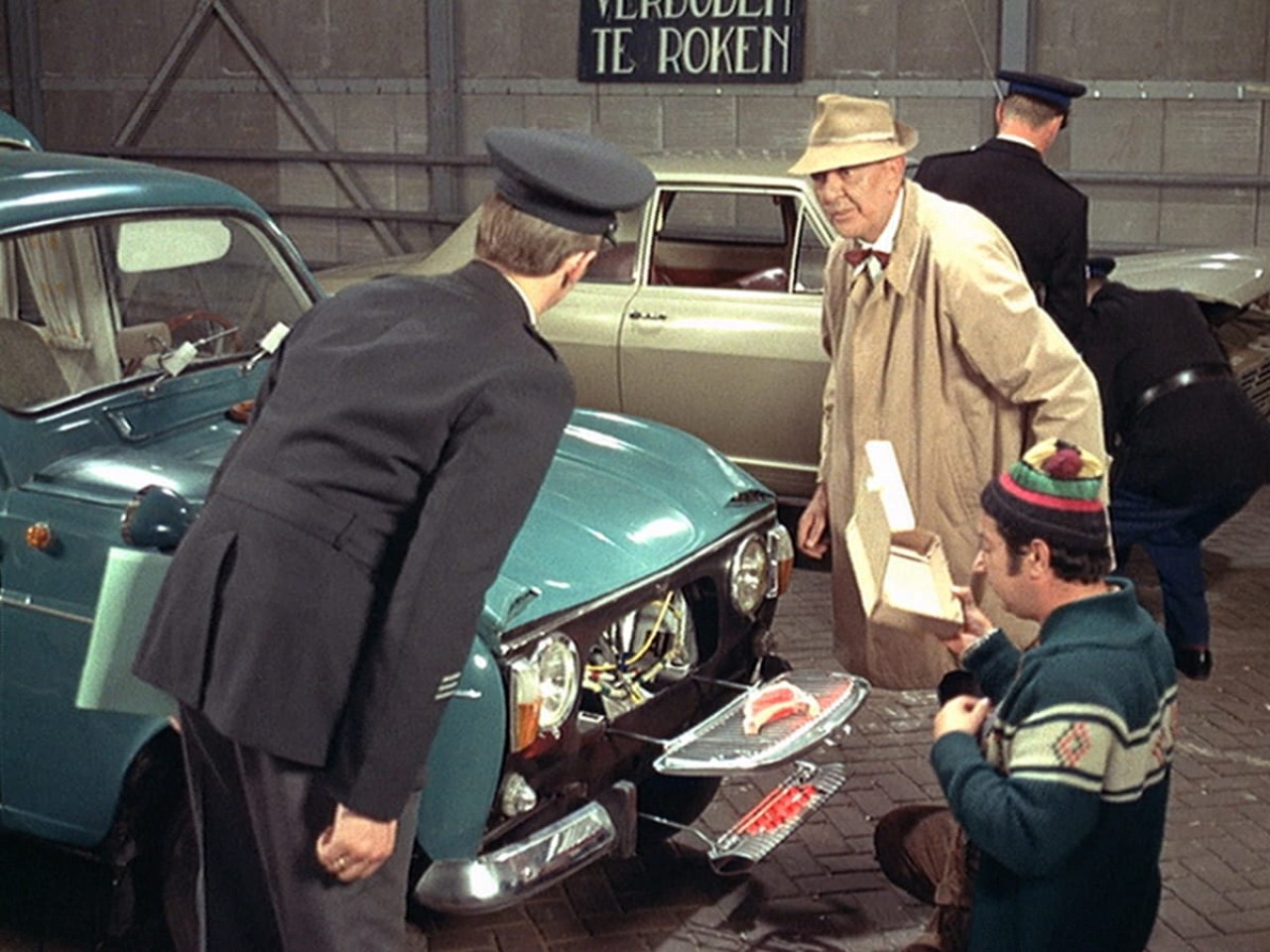Trafic

In Jacques Tati’s Trafic, the bumbling Monsieur Hulot, kitted out as always with tan raincoat, beaten brown hat, and umbrella, takes to Paris’s highways and byways. In this, his final outing, Hulot is employed as an auto company’s director of design, and accompanies his new product (a “camping car” outfitted with absurd gadgetry) to an auto show in Amsterdam. Naturally, the road there is paved with modern-age mishaps. This late-career delight is a masterful demonstration of the comic genius’s expert timing and sidesplitting knack for visual gags, and a bemused last look at technology run amok.
Special Features
- New 2K digital restoration, with uncompressed monaural soundtrack on the Blu-ray
- “Jacques Tati in Monsieur Hulot’s Work,” a 1976 episode of the British television program Omnibus featuring an interview with Tati about his Hulot films
- Trailer
- New English subtitle translation
Available In
Special Features
- New 2K digital restoration, with uncompressed monaural soundtrack on the Blu-ray
- “Jacques Tati in Monsieur Hulot’s Work,” a 1976 episode of the British television program Omnibus featuring an interview with Tati about his Hulot films
- Trailer
- New English subtitle translation

Cast
- Jacques Tati
- Monsieur Hulot
- Maria Kimberly
- Maria
- Tony Knepper
- Mechanic
- Marcel Fraval
- Truck driver
- Honoré Bostel
- Director of Altra
- François Maisongrosse
- François
Credits
- Director
- Jacques Tati
- Producer
- Robert Dorfmann
- Screenplay
- Jacques Tati
- With the artistic collaboration of
- Jacques Lagrange
- And the participation of
- Bert Haanstra
- Directors of photography
- Edward van den Enden
- Directors of photography
- Marcel Weiss
- Camera operators
- Paul Rodier
- Camera operators
- Anton van Munster
- Editors
- Maurice Laumain
- Editors
- Sophie Tatischeff
- Sound
- Ed Pelster
- Sound
- Alain Curvelier
- Sound mixer
- Jean Nény
- Music
- Charles Dumont
- Set designer
- Adrien De Rooy

















